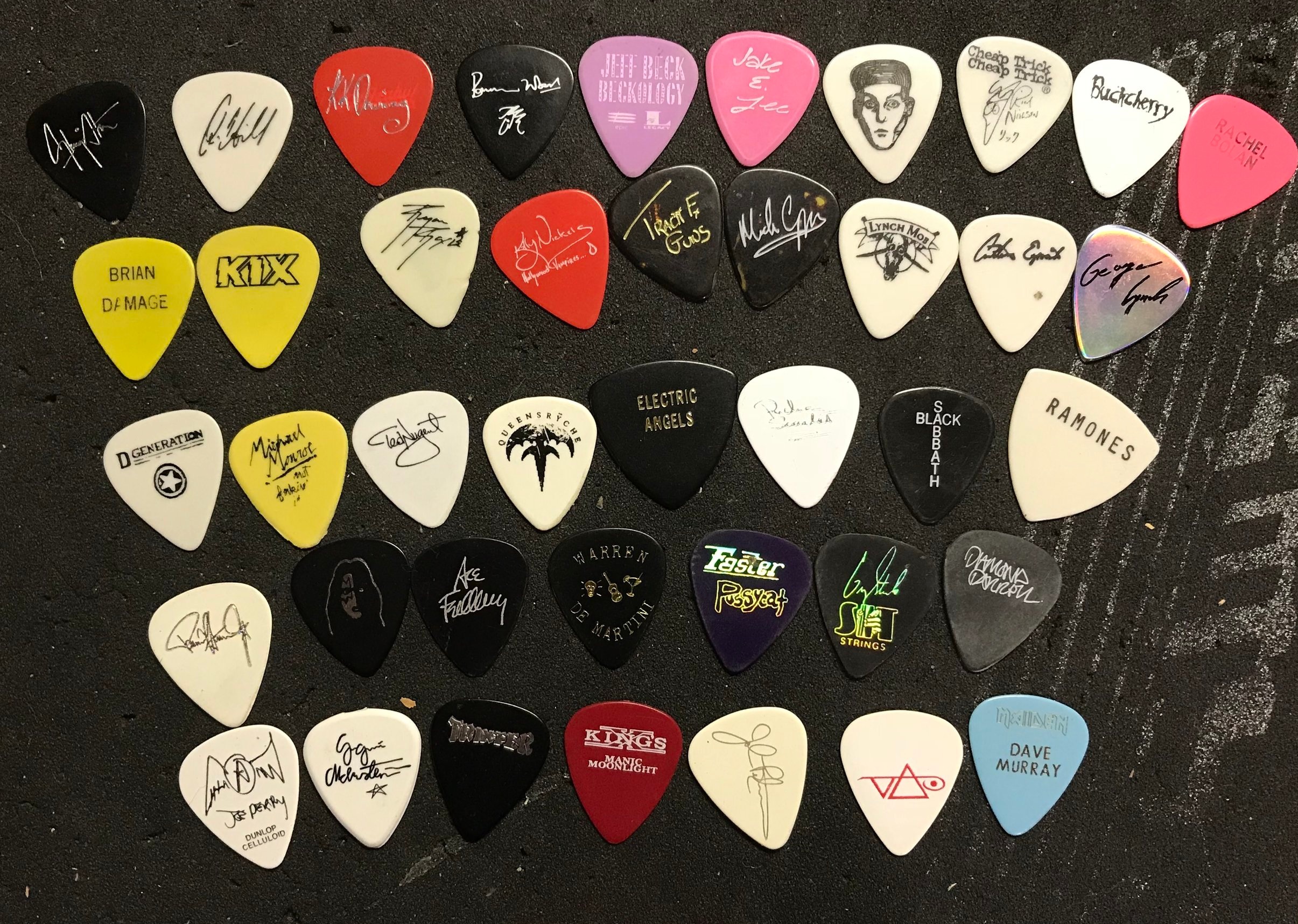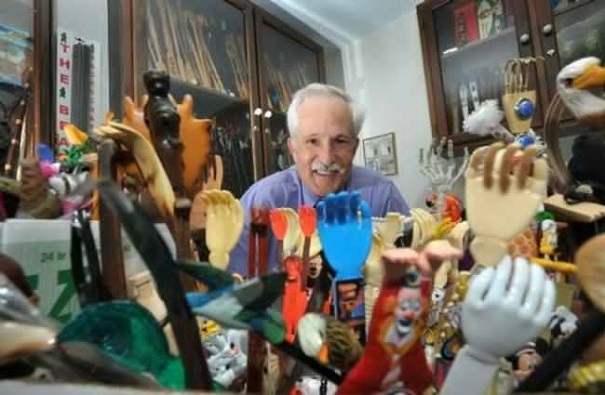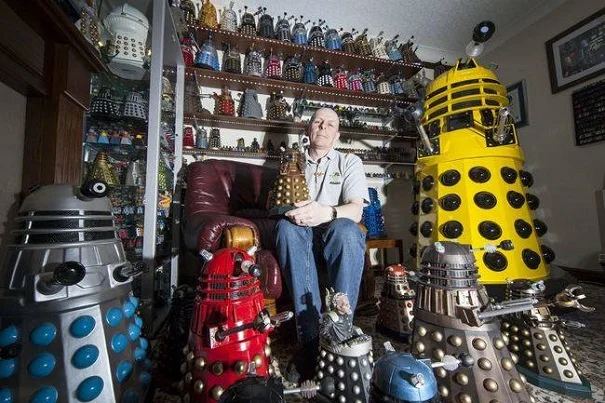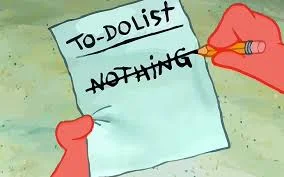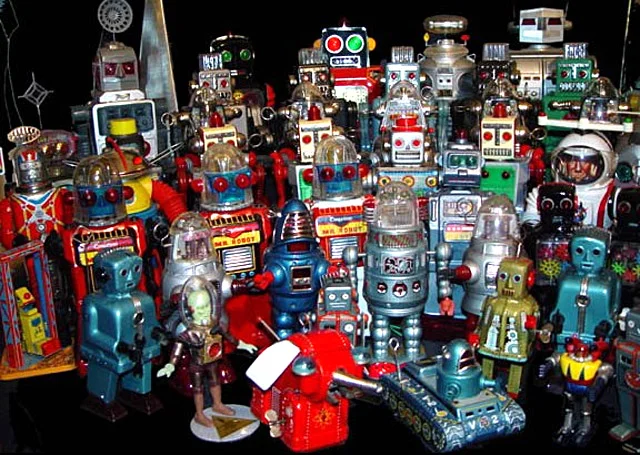By The Landlord
“Writers are magpies by nature, always collecting shiny things, storing them away and looking for connections of things.” – John Connolly
“Collecting facts is important. Knowledge is important. But if you don't have an imagination to use the knowledge, civilisation is nowhere.” – Ray Bradbury
“We like lists because we don't want to die.” – Umberto Eco
“Inside the museums, Infinity goes up on trial, Voices echo this is what salvation must be like after a while.” – Bob Dylan
When is a collection complete, and how many is too much? If x is how many you have, the equation for the perfect amount always seems to be x+1.
The actor Alec Baldwin has a large selection of unusual travel alarm clocks. The eccentric director David Lynch collects and inspects mouldy sandwiches. I have a friend who has hundreds of toy robots, but far more significantly, far more pinball machines and big, metal, old coin operated arcade games, all of which are huge and phenomenally heavy, taking up vast, expensive storage space. But whether your passion is, or has ever been art, books, music in various formats (especially vinyl), musical instruments (especially guitars), animals (alive or dead), ornaments, coins, autographs, stamps, train or bus numbers, egg cups, bottle tops, snow shakers, matchboxes, sugar cube wrappers or anything else, what drives that passion and how is it satisfied?
We also collect friends, contacts, and of course, money. But where does it all come from? Our hunter gathering roots? Is is a mapping of experience, and definition of self? And then how do we store, catalogue and access these items? This week then our topic, referenced in lyrics or as the main subject of the song, is anything and everything to do with collecting and making records of it.
This is arguably something of a meta-topic, with the aim of creating lists of songs about lists, but not merely lists about song-lists. But why do we do this whole thing here at the Song Bar? As the Irish writer John Connolly says, it’s about finding the connections of things.
Making lists and collections is about seeing the world in a more cohesive manner, finding a theme, a pattern, meaning. And above all creating something beautiful. Collections can be lists and dry catalogues on databases, filing systems and books, but they can also be visual display. I’ve said it before, but there’s definitely a connection between playlists and works of art, not only in human endeavour, but also the natural world. The artist Andy Goldsworthy collects sticks, stones and other objects in nature to create stunning forms. He says: “I do tests on small stones before collecting and committing myself to the larger ones.” Is is one of the results:
Andy Goldsworthy: artful collecting
And this is very much in parallel to the endeavours of the bowerbird, whose ultimate aim is not so much to gain personal artistic satisfaction or public acclaim, but his work has a more urgent purpose. The Vogelkop bowerbird, not only has a repertoire of mimicked sounds, but is an avid collector with an skilfully selective eye for colour. Behold his magnificent creation is all for love:
But when does collecting veer from the natural to the unhealthy? How do we tell the difference? Should collections be shared with others, or are they OK if just for the private individual? Should they have some kind of creative, or higher purpose, and ultimate goal, to see a bigger picture, other than mere greedy cataloguing or something associated with a mental health problem? How do you tell the difference between pointless greedy hoarding, and constructive broadening of the mind, education and enlightenment? Where do you draw the line between eccentricity something weirder?
Perhaps it is the colours that attract some people to collections. Carol Vaughn, 65 from Birmingham, UK, has an impressive collection of more than 5,000 bars of soap, probably more now if she were to come clean on the number:
Soap opera?
North Carolina dermatologist Manfred S. Rothstein owns at least 675 back scratchers from 71 different countries. I’ll scratch your back if …
Go the collecting itch?
Rob Hull meanwhile has, at the last count, 571 Daleks, but probably way more than that now. They’ll never be exterminated.
Dalek invasion
All well and good, but what about Graham Barker, who has the largest collection of belly button fluff, begun in 1984, and kept in jars? Well at least they don’t take up much space. Oil investor Richard Gibson meanwhile has been religiously saving all his toenail clippings in a glass jar for the past 40 years. Could these be used for medical research?
But then things get weirder. US couple Bob and Lizzie Gibbons share their home with a collection of 240 sex dolls. Apparently they like dressing them up and taking them on shopping trips. Or is this a lot of hot air?
Bob Gibbons and friends. Inflated idea?
Can we shed any light on this actively? Here’s Neil Perryman, from his book Adventures With the Wife in Space: Living With Doctor Who: “Because you are not trying simply to complete a set of books or toys or Weetabix cards, you are trying to complete yourself, to get back to the whole person you were before, as a child, before the obstructions and compromises of adulthood got in the way. And yet, all you are really doing is accumulating a pile of crap, souvenirs of the futility of the quest.” So perhaps this all stems from trying to regain something from childhood, a need for identity, a need to love and be loved.
These collections may be odd, but they are probably, mostly, harmless. Some collections are clearly not. Humans have a long history of collective animal specimens, often to the point of damaging species survival. Among many other obsessions, egg collecting, or oology, t reveals long and colourful history. Poached is a 2015 documentary that reveals much about this story, the characters involved, the psychology of it, and the legislation that finally came into force:
In 1963 the novelist John Fowles published his gripping thriller The Collector, about Frederick Clegg, an uneducated loner but butterfly collector who becomes obsessed with art student Miranda Grey, whom he abducts and keeps prisoner in a Sussex cottage. The two halves of the book are told from their perspectives, revealing many the psychology of collecting. ““We all want things we can't have. Being a decent human being is accepting that,” we hear, and “When you draw something it lives and when you photograph it, it dies.”
Collectable first edition cover of The Collector by John Fowles
So where do you draw the line between healthy and unhealthy collecting, as well as making lists of things you want to acquire? ““Certainly, it is more reasonable to devote one's life to women than to postage stamps, old snuff-boxes, or even to paintings and statues,” says Marcel Proust in The Guermantes Way.
Some collecting is not so much for the private individual to enjoy, but private information to be used by larger, and more sinister organisations. We are in an era of mass surveillance and manipulation of fact and media distortion as never before. Here then is a telling perspective from Russian president Vladimir Putin, who no doubt has a very involved interest in this. “Journalism, as concerns collecting information, differs little if at all from intelligence work. In my judgment, a journalist's job is very interesting.”
Some lists are very useful indeed. Even more interesting is the perspective of Mikko Hyppönen, Finnish computer security and cybercrime expert, on a particular form of collecting: “Governmental surveillance is not about the government collecting the information you're sharing publicly and willingly; it's about collecting the information you don't think you're sharing at all, such as the online searches you do on search engines... or private emails or text messages... or the location of your mobile phone at any time.
Now, from mass lists of private information to private lists of small information. We all make lists. But why? To signpost our lives to find direction, motivation, sometimes with a creative purpose? But not all lists are so useful. We’ve all done to-do lists, but how often is list making just another thing to write down on that list, in a self-consuming paradox?
First, make a list …
But let us gradually turn back to collecting that serves a purpose. How do you list or catalogue your own music, books or anything else? Alphabetically, or, as many great libraries have done with a numbering system? Libraries are glorious places, not because their are private, but public. Are they can also offer a visual experience, such the Long Room at Trinity College Dublin:
Library at Trinity College, Dublin
Or if you want to see different kinds of collections there is the Horniman Museum in south London, with some extraordinary animal specimens and African artefacts, but also one of the biggest collections of musical instruments:
Horniman Museum, London. Part of the string section.
Libraries and museums can be stuffy and intimidating, but they have given the opportunity and offered the inspiration for many people to be creative. On the glory of libraries, we now have some more visitors to the Bar. Here are three:
“The library will endure; it is the universe. As for us, everything has not been written; we are not turning into phantoms. We walk the corridors, searching the shelves and rearranging them, looking for lines of meaning amid leagues of cacophony and incoherence, reading the history of the past and our future, collecting our thoughts and collecting the thoughts of others, and every so often glimpsing mirrors, in which we may recognise creatures of the information.” says Jorge Luis Borges in The Library of Babel.
“A great library is anything and everything. It is not for its current custodians to judge what the future will find to be of importance, and it is this eclecticism that gives it the mystique, that is the wonder of it,” says Penelope Lively, reading from Ammonites and Leaping Fish: A Life in Time.
Now Walter Benjamin is here, broadening on the topic with great enthusiasm. “Oh bliss of the collector, bliss of the man of leisure! Of no one has less been expected and no one has had a greater sense of well-being than... a collector. Ownership is the most intimate relationship one can have to objects. Not that they come alive in him; it is he who comes alive in them.”
And now there’s a flood of collectors coming into add their passion to the subject. “I believe that everyone collects. I think collecting is in our blood as humans,” says Lynda Resnick, American billionaire entrepreneur and businesswoman.
“I have always wished I could learn to be a potter. I love collecting ceramics; it would be so fulfilling to create something lovely,” says Julie Andrews. Perhaps she’ll break into song. Smashing.
More musicians have arrived on our list of visitors.“I'm very much into making lists and breaking things apart into categories,” says David Byrne. And his sometime collaborator Ryuichi Sakamoto adds: “My interests are moving toward both 'sound and music,' not just 'music.' I have been doing lots of field recordings and also collecting lots of strange sounds.”
“Even when I don't think I'm writing, I'm writing. There's some part of my brain geared toward making songs up, and I know it's collecting things and I know when I get a moment to be by myself, that's when they come out,” says Jeff Tweedy.
“Well, I collect words and phrases and cut things out of newspapers and keep scrapbooks and write down ideas in my phone or 10,000 notebooks all around my house. It's not very organised, but I keep collecting, so I did have a lot of material to help me to write songs. says Roisin Murphy.
John Mayall is also here, and his interest is more about broadening knowledge: “Once you start collecting records you learn more and more about jazz and blues.”
We are the robots …
The writer Anita Shreve has a collecting hobby that gives here ideas for narratives. “I have spent many hours on the beach collecting sea glass, and I almost always wonder, as I bend to pick up chunk of bottle green or a shard of meringue white, what the history of the glass was. Who used it? Was it a medicine bottle? A bit of a ship's lantern? Is that bubbled piece of glass with the charred bits inside it from a fire?”
Talking of beautiful objects, some artists are also here to have a say. “Collecting has been my great extravagance. It's a way of being. I collect for the same reason that I eat too much-I'm one of nature's shoppers, says the painter Howard Hodgkin.
Cornelia Parker explains how her collecting obsession turned into her work: “I was selling bric-a-brac in Portobello and Camden Market. I love objects. But I was embarrassed by the idea of collecting, so I began using these things in my art.”
Once we start collecting, the more you have, the more it gets valuable and that will stop us from responding to the present and taking on new ideas what the artists are doing now. says another British artist, David Elliott.
"Collecting is the sort of thing that creeps up on you." Paul Mellon, American philanthropist who not only collects art, but is also a prolific owner and breeder of thoroughbred racehorses. Collecting is perhaps about fulfilling dreams, some of which come from childhood.
So from large collections to the small, let’s end, rather eccentrically, with the actor Mackenzie Crook, who admits “I’ve been collecting Star Wars figures again. When I was a kid I couldn't afford them. Now I can so I've been buying them and keeping them in their box for a later date when they'll be worth a lot of money.” And with that we’ll finish with a clip, and a song the wonderfully subtle The Detectorists, penned by and starring Crook, about two loner metal detector collectors, who in the course of their banal activity, find profundity. We are all magpies in one way or another.
So then I turn to this week’s chief collector, a grand librarian of wisdom and judgement, the superb Severin! To add to the collective wisdom and knowledge of our establishment, and to create lists about lists, but with a wider purpose, place your songs in comments below, deadline at 11pm on Monday UK time, for playlists published on Wednesday. Seek and ye shall find all that shines.
New to comment? It is quick and easy. You just need to login to Disqus once. All is explained in About/FAQs ...
Fancy a turn behind the pumps at The Song Bar? Care to choose a playlist from songs nominated and write something about it? Then feel free to contact The Song Bar here, or try the usual email address. Also please follow us social media: Song Bar Twitter, Song Bar Facebook. Song Bar YouTube. Subscribe, follow and share.

